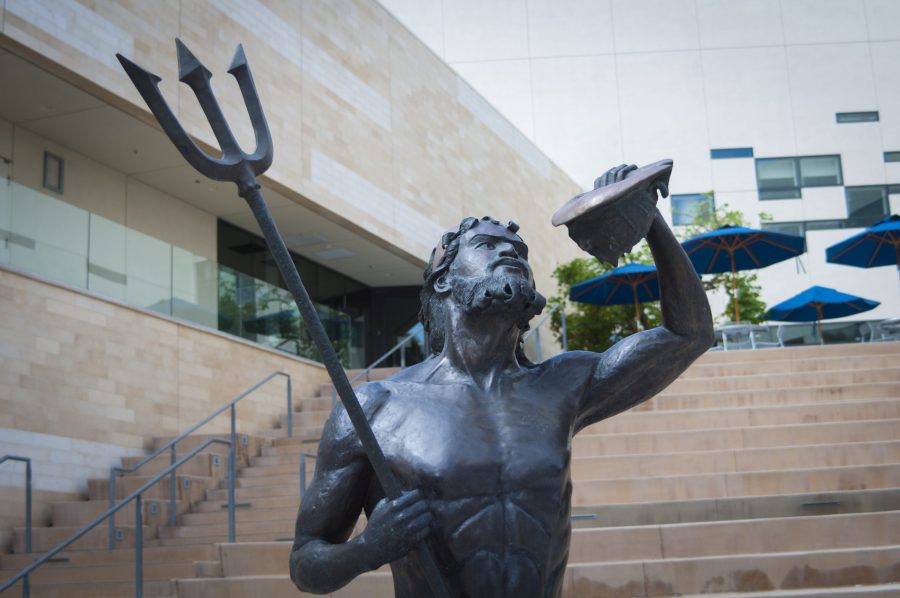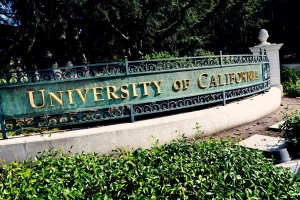UC Chancellors Discuss Possible Tuition Increase
Photo by Siddharth Atre/ UCSD Guardian
Jan 10, 2021
University of California chancellors are considering a tuition increase in order to mitigate the financial impact that the UC System faces in light of the COVID-19 pandemic. In March 2020, the UC Board of Regents had a proposed five-year plan to raise tuition by 2 percent for undergraduate students, but the vote was postponed as the pandemic increased in severity.
“We’ve been eating at our fat for a long time and what I’m saying now is that we’re down to the bone,” UC San Diego Chancellor Pradeep Khosla said in an interview with The Los Angeles Times. “Even though this is not a perfect time for a tuition increase, it is a good time to start thinking about it.”
A university-wide tuition increase, in part, would provide the university with greater funds to increase financial aid and manage campus costs. However, the increase could become burdensome to students and families who may currently struggle with financing higher education or who would if the tuition were to increase.
Stett Holbrook, the Senior Communications Strategist for the UC Office of the President, provided The UCSD Guardian with the UCOP’s statement regarding potential tuition changes through email correspondence.
“Early in the pandemic, the University of California decided not to raise systemwide tuition and fees for the 2020–21 academic year, in recognition of the uncertainty and anxiety that the pandemic was already creating for students and families,” Stett said. “In fact, the University has held tuition flat for eight of the past nine years.”
Regardless, the University finds it necessary to continue to explore ways to increase funding for rising costs.
“[However], the University must and will explore long-term ways to support the operating costs of instruction, academic advising, and student services, among other priorities in the midst of the budget-related challenges of the pandemic,” Stett said.
The most recent approved vote to hike tuition was in 2014: the UC Board of Regents authorized a five-year plan to increase student tuition by up to 5 percent per year. When passed seven years ago, the decision was met by protests from students throughout the state and UC system.
In his interview with The Los Angeles Times, Khosla furthered the discussion surrounding UCSD’s campus. At the campus, fall enrollment in 2020 reached unprecedented levels despite the fact that the University expected lower enrollment rates due to the pandemic.
Khosla told The LA Times that despite the increased University revenue brought about by enrollment rates, the University should still begin the tuition conversation in the imminent future. Khosla also said that the campus is now able to postpone pandemic-related layoffs until the summer of 2021.
“By investing in UC, you’re literally investing in the state and job creation, technology creation, economic development,” Khosla also said to The LA Times.
Associated Students Financial Controller and Eleanor Roosevelt College senior Nicholas Butler recognizes the potential benefits and detriments that would arise as a result of a tuition increase.
“On one side, there’s a clear detriment that if you raise tuition, that’s gonna negatively impact students,” Butler said. “As a working student, I know that would negatively affect someone in my position. On the other hand, raising tuition would allow for a greater financial aid for students who need it and it would also be able to make sure that all employees stay employed if tuition was raised. […] I would lean more towards the negative [perspective] at this point — that it is more harmful than beneficial.”
Despite the UC’s proposal to increase student tuition, California Governor Gavin Newsom rejected the concept at a Sacramento briefing on Jan. 8.
“We do not believe it’s time for tuition increases and fee increases,” Newsom said to the Los Angeles Times. “And we do believe it’s time to invest more in student aid across the spectrum. And that’s exactly what this budget proposes.”
Instead of the tuition hike, Newsom proposed a general fund increase of $786 million for the UC and the California State University, both of which suffered financial impacts as a result of the pandemic. Newsom’s budget proposal will provide investments with the expectation that tuition will not be increased across the UC, CSU, and California Community Colleges.
“The Budget reflects an expectation that one of these costs — tuition and fees — remain flat at all three public higher education institutions in 2021-22 and also includes student basic needs investments, emergency financial assistance investments, and investments supporting expanded mental health services and students’ access to electronic devices and high-speed Internet connectivity,” the budget states.
Part of Newsom’s investment provides an ongoing base fund of $136 million to support a three-percent general fund increase for the University of California; such funding would support UC Payroll, Academic Personnel, Timekeeping & HR, the Division of Agriculture and Natural Resources, UC Programs in Medical Education, and student mental health resources, among other things. In addition, a one-time fund of $225 million would go towards deferred maintenance, energy efficiency projects, the California Institutes for Science and Innovation, and more.
With this proposed budget, the UC is also expected to make efforts to reduce equity gaps, improve online learning, adjust academic goals to better fit workforce needs, and create a new dual immersion program that would guarantee UC admission for first-time freshmen when they receive an Associate Degree for Transfer.
The UC has not yet responded to Newsom’s rejection of possible tuition increases but has expressed their thanks to Newsom for his investments.
“We thank Gov. Newsom for these critical investments in UC students and California’s future, especially given the fiscal uncertainty during COVID-19,” the UC Board of Regents Chair John A. Pérez and UC President Michael V. Drake said on Jan. 8. “We will collaborate with the governor and Legislature in the months ahead to secure additional funding and continue our University’s vital work of expanding access and affordability for California students, delivering quality health care, and driving the state’s economic recovery.”
The UC Board of Regents will hold a public meeting on Jan. 20 to review the 2021–22 proposed budget plan from Newsom; the meeting will occur directly after the ending of the 2 p.m. closed session meeting.
Photo courtesy of Siddharth Atre for The UCSD Guardian.
This article was edited on Jan 11, 2021 at 11 PM to include Governor Newsom’s response to the UC’s proposed tuition hike.
















Elisabeth • Jan 15, 2021 at 7:48 am
You can start investing https://www.zoominfo.com/c/gld-partners-lp/461773336 with a regular deposit in the bank. It would seem that this is a fairly simple method that is used by quite a few. However, it is also one of the most popular. In this case, it is worth conducting a detailed analysis of the banks ‘ offers